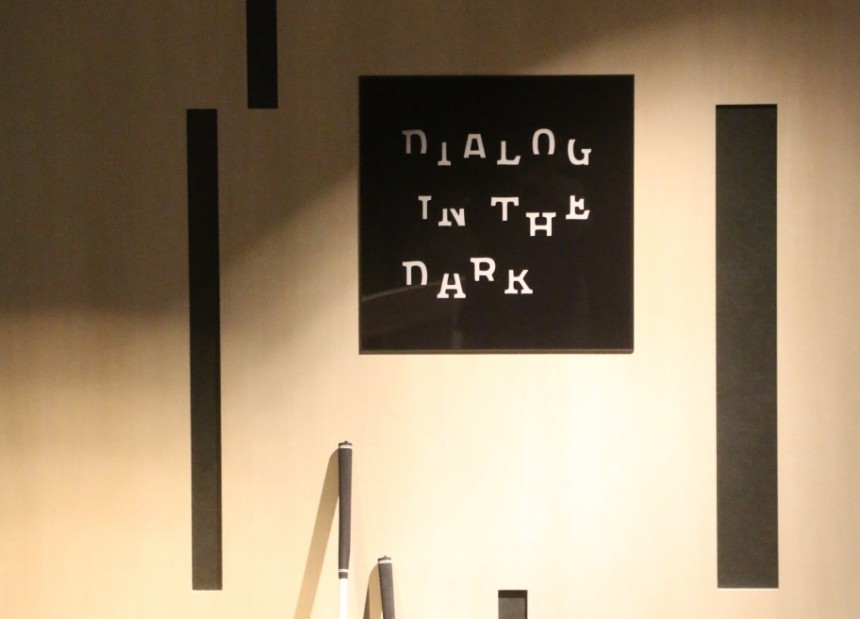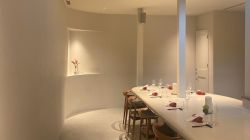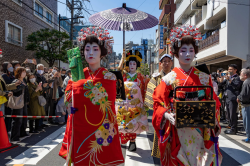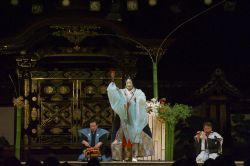
March 2, 2020
Dialogue in the Dark: Totonou
Lose a sense to gain a new perspective at this immersive event
Note: Due to the ongoing outbreak of the new coronavirus, Dialogue in the Dark tours and events have been cancelled until March 8. Upcoming English sessions on March 9 and March 20 are still open. Keep reading for more details and check the DiD homepage before making a reservation.
“We invite you to have a dialogue with us, and also with yourself,” our guide tells us in the dimly lit room, a kind of hallway before the total darkness. The guide’s name is Tomoyo, but she asks us to call her by her nickname, Jelly. Jelly is blind, like all of the guides in the “Dialogue in the Dark” (DiD) sessions. The dim lights are for us, the barefoot strangers embarking on a distinctly Japanese take on the internationally renowned DiD experience.
What is Dialogue in the Dark?
To raise awareness about the life of blind and visually impaired persons, Andreas Heinecke started the Dialogue in the Dark Society in Germany in 1989. Since then, DiD has gone international, its various exhibitions and workshops teaching people to empathize with an often disadvantaged group in society.
Dinner in the Dark is one of the best-known experiences of DiD, but not the only one. In Japan, DiD has been around since 1999 and this year, the DiD “Totonou” experience has sessions in both English and Japanese. Totonou, which means “to put in order,” refers to the event’s aim of invoking inner balance by surrounding participants in nature and silence, allowing you to “learn about the world around you with your senses.”
Totonou: Experiencing quintessential Japan in total darkness
Back in the room, we listen carefully to our blind guide. We soon realize that nodding to indicate we understand her instructions is not the proper way to communicate. It’s the first lesson one learns in communicating with visually impaired people: you need to speak up loud and clear. Jelly teaches us how to use our white canes, how to touch with the back of our hand first and how to vocalize everything we’re doing, and we slowly experience how visually impaired people live their life. It’s as if we’re walking in their shoes, but we’re barefoot, so let’s say we’re walking into their element.
The lights are turned off and we are all suddenly blind. There are no strangers in the darkness; we all learn each other’s names, touch each other, and quickly form a special camaraderie making sure no one is left behind. In the pitch black, Jelly is the one most capable. The tables have turned.
It is said that losing one sense may sharpen the other senses. During the DiD experience we only have touch, smell and sound to rely on. It’s akin to reading a book and imagining the spaces described in it. We “see” with our bare feet, fingers, ears, noses, and from the information gathered, a Japanese garden emerges. We also “see” a capable, multilingual blind guide and completely rely on her. Ultimately, we realize we are free. Free to play with the elements, to touch everything, to lie down and relax.
There are no strangers in the darkness; we all learn each other’s names, touch each other, and quickly form a special camaraderie making sure no one is left behind.
Without spoiling the details, the DiD Totonou experience is rooted in nature and we feel water, grass and wood in many forms. One of its themes is Zen, and several times throughout the session, we learn how to breathe, meditate and see within. At the end of the journey, Jelly says, “We are going back to the world of light, but I hope you will now see it differently.”
New light, new sight
At the small room where we started, we do see light differently — it’s too harsh. We also realize none of us can pinpoint the time we spent inside the darkness, but Jelly confirms it’s been two hours. With a hint of embarrassment, we admit we fumbled automatically for our smartphones in the darkness, a habit, but ultimately we were happy to have tapped into a deeper dialogue, one that can only take place within. As promised, we did not only learn about the world of visually impaired people, but also about our severely attention-deficit selves.
Make a Reservation
DiD Totonou takes place on the second floor of Mitsui Garden Hotels just opposite the new Olympic stadium. In addition to Japanese language sessions, there are English language sessions currently scheduled for March 9 at 1:30pm and March 20 at 11am, with more sessions to be announced for April and May. Moreover, the Museum of Diversity and Inclusion, which opens on July 14, will offer DiD experiences, including “Dialogue in Silence” and “Dialogue with Time.”
Dialogue in the Dark: Totonou
¥12,000 (including tax)
Adults only
Prior booking is required. Reservations available on Peatix.
For further inquiries contact totonou@dialoginthedark.com
did.dialogue.or.jp/totonou





